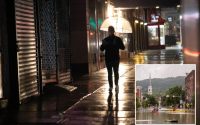Top Biden official a no-show at hearing on $200 billion COVID-19 fraud
A House hearing on hundreds of billions of dollars worth of fraud perpetrated by pandemic aid scammers was hobbled Thursday when a key Biden administration official opted to skip her appearance.
Isabella Casillas Guzman, head of the Small Business Administration, turned down an invite to appear before the House Small Business Committee, citing scheduling conflicts.
As a result, lawmakers were left scrambling to rectify the vast gap between the SBA’s $36 billion estimate of COVID-19 fraud and the $200 billion projection from its Office of Inspector General, led by Hannibal Ware — who did find the time to show up for the hearing.
“I want to reiterate how disappointed I am the administrator did not show up today,” committee Chairman Roger Williams (R-Texas) said during the Q-and-A period.

“This is a big deal. And I would assume she would have an army of her staff here to defend her work and the SBA as a whole.”
At one point, Rep. Mark Alford (R-Mo.) read aloud his prepared questions to Guzman to showcase his disgust.
“It is very disappointing that someone that we pay our federal taxpayers’ dollars, out of the US Treasury cannot be here to answer questions,” he said.

Democrats swooped to Guzman’s defense, claiming that most of the wrongdoing uncovered occurred under her predecessor, Jovita Carranza, who wasn’t at the hearing either.
“The vast majority of the fraud took place in the first nine months of 2020,” said Rep. Morgan McGarvey (D-Ky.). “Who was the small business administrator at that time? … It wasn’t Miss Guzman, was it? … I guess there’s an empty seat here for them too.”
During the pandemic, the SBA helped oversee both the Paycheck Protection Program (PPP) and the Economic Injury Disaster Loans.

There have been over 1,000 indictments, approximately 800 arrests and more than 500 convictions stemming from the watchdog’s investigatory work as of last month, according to Ware.
Without Guzman present, the panel struggled to drill down on corrective measures SBA was taking to root out fraud going forward.
Ware underscored that his office had access to broader datasets than the SBA itself to unearth swindling. He noted that the OIG’s estimate for potential fraud initially hovered around $650 billion before further investigation whittled that number down.
“I believe that as [more] datasets come available … to us, that the number could be calibrated, it could go up, it might go down. But I’m telling you that we have a cap on where we believe that fraud level is currently and that’s at a little over $200 billion,” he said.

Ware also noted that he had discussions with Guzman about the gaping discrepancy in fraud estimates from his office and hers.
“Guzman and I are normally in lockstep,” he said.
“We work together very, very closely. I actually was surprised about the report,” he added, referring to the SBA’s rejection of his findings.
The OIG’s office isn’t the only one searching for pandemic fraud.

A myriad of state attorney generals, the FBI, Secret Service, IRS, Department of Homeland Security, and more have put teams on the hunt for stolen funds.
Estimates of how much of the more than $4 trillion government-approved pandemic relief was swiped vary wildly. Last month, for instance, the Associated Press estimated that roughly $420 billion was plundered or wasted. In February, Department of Labor Inspector General Larry Turner testified before the House Ways and Means Committee that the amount stolen was believed to be at least $191 billion.
Ware implored lawmakers to ensure his office receives adequate funding to continue its investigative work.


He noted that the statute of limitations on instances of fraud currently under review runs out in under a decade, but emphasized his team “will not stop coming” for the fraudsters in the meantime.
“I believe that’s the case for all our law enforcement partners across the nation,” he added.


